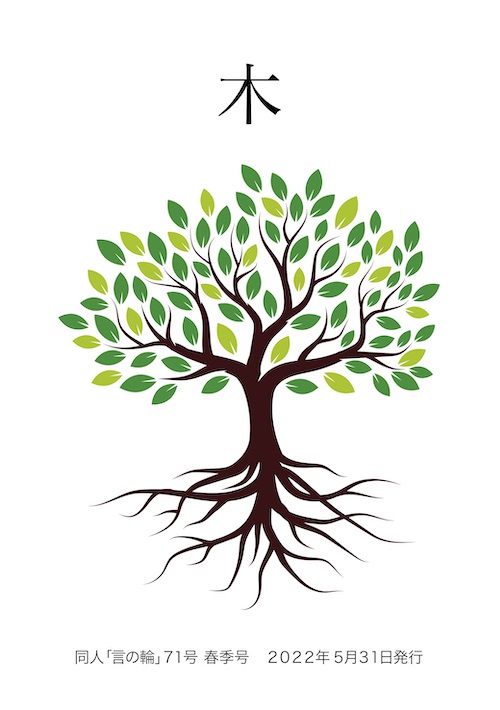
前書き
Preface Ella Rutledge
The Importance of Trees
There are many squirrels in my neighborhood. I see them every day. I see them from my window,
running around my garden, searching for a nut they buried there last fall. I see them when I go
for a walk, playing in the trees, always busy, always active, always scurrying here and there.
Although they come down to the ground to bury or dig up their cache of food, the squirrels really
spend most of their time in the trees. They build their nests high up in the branches.
They use the branches as a system of roads to travel from one tree to another, from one part
of the woods to another. If you stand near a tree and look up, you can see how complicated
this highway system is. Yet the squirrels have no trouble traversing it every day, leaping from
one branch to another, never stopping to wonder if it can hold their weight or if it will take
them in the direction they want to travel. They just leap and grab on to the branch and let it
take them where it will.
I doubt that squirrels could survive without the trees, upon which they depend for so much:
for food, for shelter, for transportation, for play. The same is true for us humans. Could we survive
without trees? They give shelter to humans, too. In the summer their green leaves provide shade from
the hot sun and help keep the air cooler. We also use their wood to build and furnish our homes.
We eat their fruit and nuts. Children climb trees, hang swings from their branches, and hide behind
them, too. Artists enjoy painting them. Musicians play instruments made from their wood.
Writers use paper made from trees to write on or print out their work, and readers enjoy their works
in the form of books, newspapers, and magazines, all made possible through the generosity of trees.
Thank you, trees!
Glowing unobserved
deep within a ruined wood
white dogwood blossoms
木の大切さ エラ・ラトリッジ 田村 道子訳
近所にはリスがたくさんいて、毎日見かけます。我が家の庭を駆け回り、去年の秋に埋めた木の実を探しているのが
窓から見え、散歩に出ると、木々の間を忙しそうに活発に飛び回っているのを見かけます。確かに地面に降り、
食料を埋めたり掘り出したりはしても、リスは生活の大半を木の上で過ごします。高い枝の間に巣を作り、枝を伝って
木から木へと森の中を移動します。木の近くに立って見上げると、この高速道路がどんなに複雑か分かるでしょう。
毎日枝を伝って木から木へ、それが彼等の体重を支えてくれているのかどうか、行きたい所へ導いてくれるのか、
全く気にする様子もなく飛び回っている。ただ、跳躍して手頃な枝につかまり、その先に移動する。
リスは木がなければ生きていけないと私は思います。木の上にある食料、棲家、移動手段、遊び、など、
多くを木に依存しているからです。私たち人間もそうです。木がなくても生きていけるでしょうか。
木は私たちにも住む場所を与えてくれます。夏はその緑の葉が暑い日光から私たちに日影を作ってくれるし、空気を
冷やしてくれる。木材で家や家具も作れるし、その果物や木の実を食べ、子供たちは木に登り、枝にブランコをかけ、
かくれんぼもする。画家は絵を描き、音楽家は木材で作った楽器を演奏する。作家は木が原料の紙に書き、紙は印刷され、
読者は本、新聞、雑誌、という形で木の恩恵を楽しむ。ありがとう、樹木たち!!!
隠れ咲く 滅びし森の ハナミズキ
同人言の輪第69号秋季号 2021年11月発行
